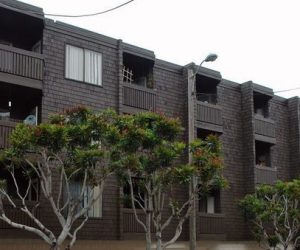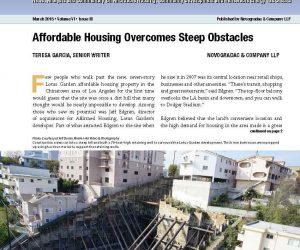Oregon House lawmakers advanced housing legislation recently to build housing that is more affordable, spend money to support unsheltered children and help people on the verge of losing residences.
As lawmakers’ work together to pass a two-year budget, it is expected that their budget proposal in the coming weeks will include additional funding for housing and homelessness. This is the latest big step on state leaders’ push to solve the housing and homelessness crisis.
Made up of House Bills 2001 and 5019, the package would dedicate about $200 million to the construction of more affordable housing in the state, rehouse about 1,200 people without homes, prevent homelessness for more than 8,000 and expand shelter capacity by 600 beds within one year.
A Connection to a Former Bend Mayor
Rep. Emerson Levy, a Democrat who represents Central Oregon, supported the plan by telling colleagues about a former Bend city official who died earlier this year.
“When I read recently that our former Mayor Craig Coyner … former mayor of Bend had recently died homeless, his feet frozen, my heart broke at the reminder that we are all human subject to the difficulties that may find us,” Levy said. “We are at a crisis point and must move quickly to address our housing needs.”
Re-think Possible Solutions to the Affordable Housing Crisis
Under the proposed legislation, cities with a population greater than 10,000 would be required to set building targets for specific income levels and then build the actual number of affordable housing units they deem necessary. The legislation also aims to streamline the often-litigious and lengthy process of bringing more land inside urban growth boundaries, making it easier to build faster
The passage of major housing policy so early in the 2023 legislative session, which began in January and will stretch through June, is a win for Gov. Tina Kotek, who campaigned last year on moving swiftly to address the state’s housing crisis.
Although some Republicans voiced concerns the measures took away local control and questioned accountability tied to the money, many said they supported the effort.
The legislation requires agencies or groups that receive the state money to give legislators quarterly updates on how many people are finding new housing or staying in their current home thanks to the dollars being spent.
The legislative package devotes $25 million to address youth homelessness, $20 million to help build more modular housing, $3 million to help developers trying to build affordable homes, $5 million toward helping farmers improve living conditions for their employees and $27 million for rural counties to help them address homelessness.
Rep. Annessa Hartman, D-Gladstone, had this to say, according to this article on the Oregon Public Broadcasting website, “Too many of our families struggle to afford the cost of living,” she said. “Too many families are just one paycheck away from being evicted and too many of our unhoused neighbors and youth are struggling to find a way out … This is just the first step of many.”
Every Community Has Unique Needs and Opportunities for Housing
Addressing housing supply shortages will require different, highly localized strategies. In many cities, more affordable multifamily rental housing will make a big difference in improving housing affordability. In other markets, solutions should be focused on the building of new single-family homes, while in other markets it may be preserving existing multifamily housing.
However, one conclusion is inescapable: The supply and affordability problems are getting worse. There needs to be action taken, like the ending of single-family zoning, in order to allow for more homes to be built.
The Foundation for Affordable Housing has been working together with its partners for almost 30 years to address the affordable housing crisis.





